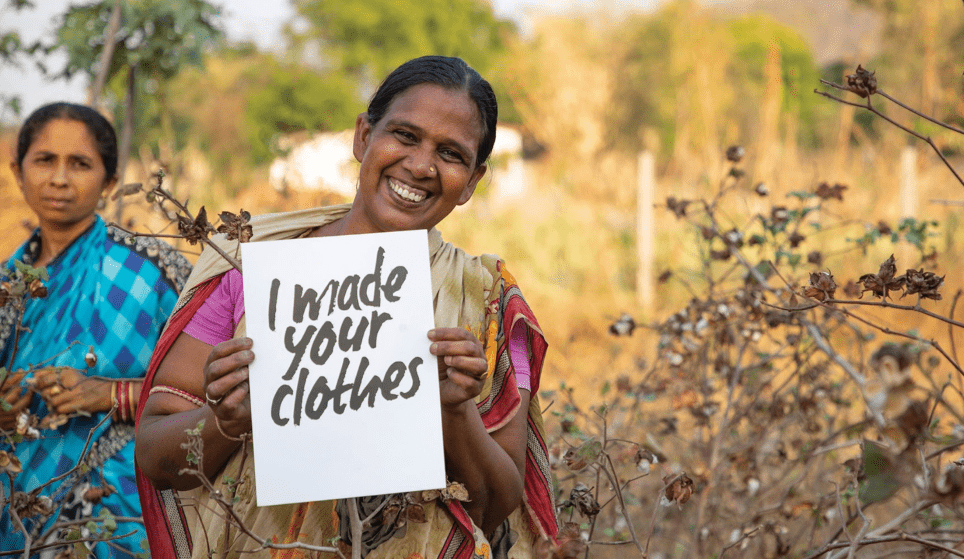Three Women that are changing the Fashion industry
Read and be inspired by the stories of three exceptional women who are concretely revolutionizing the fashion industry.
LAURA APRILE
Contributor

Fashion has always been an extremely important means of expressing oneself and one's personality. The way we decide to dress is a representation of how we want to be identified by others.
Throughout the centuries, fashion has also been a powerful vehicle for challenging the social norms and customs of the time, with clothing becoming synonymous with freedom and change.
Even today, fashion has not lost this revolutionary character.
Thus, we decided to pay homage to three women who are drastically changing the fashion industry. Three women who have courageously managed to question long-established dictates. Three women you should absolutely know.
Orsola De Castro
In 1997 Orsola De Castro founded From Somewhere, one of the first upcycled fashion brands. From Somewhere recovered textile scraps, giving life to new garments designed to be stylish and fashionable. The collections were immediately a great success, with a worldwide distribution.
Then, in 2006 Orsola De Castro founded Estethica, an initiative at London Fashion Week for the British Fashion Council dedicated to the promotion of sustainable designers. In 2011, Orsola founded Reclaim To Wear, a non-profit organization that supports designers, stylists and distributors to create capsule collections with recycled materials and fabrics.
In 2013, when the Rana Plaza garment factory collapsed in Bangladesh, killing over 1100 people and injuring nearly 3000, Orsola de Castro, along with Carry Somers, decided to create Fashion Revolution.
Fashion Revolution is an initiative to raise awareness about human rights and the conditions of workers in the fashion industry.
The campaign is based on a fundamental question: who made my clothes? Orsola realized that after Rana Plaza it was time for a fashion revolution. The victims were mostly women and minors. Orsola de Castro decided to give them a voice and ask for change.
One year after the Rana Plaza tragedy, 62 countries took part in the first Fashion Revolution Day. Since that day, Fashion Revolution campaigns have seen more than 1 million people around the world ask the big fast fashion brands "Who Made My Clothes?", calling for greater transparency in the industry.

Livia Firth
Livia Firth began her career in film production, but in 2009 she founded Eco-Age, a consulting firm specializing in integrated sustainability. Eco-Age provides tailored sustainability solutions for brands looking to improve their supply chains.
In doing so, Livia ensures that brands implement effective systems to reduce their impact on the environment. In addition, Livia is a United Nations Leader of Change and has also been awarded the UN Fashion Development Award and the Rainforest Alliance Award for Outstanding Achievement in Sustainability.
In 2015, she returned to film and produced the documentary film The True Cost, which focuses on fast fashion and investigates the lives of fashion workers in developing countries.
Then, Livia produced Fashionscapes, a mini-series that delves into the world of fast fashion and all its contradictions.
Livia's latest initiative in favor of more ethical and sustainable fashion is the Green Carpet Fashion Awards, an initiative created to celebrate sustainable fashion and raise awareness that style and sustainability can go hand in hand.
If you think sustainability and style don't go together, then you should Google some of this year's looks.

Ayesha Barenblat
Ayesha Barenblat grew up in Karachi, Pakistan, in a world where fast fashion and lack of rights for workers and women have always been a sad reality. Her family ran manufacturing factories.
Thus, Ayesha since her childhood has been able to observe both the merits and the flaws of these businesses. On the one hand, the fashion industry made it possible to lift young women out of poverty and give them a safe and secure job.
On the other hand, however, too many women and workers found themselves in precarious work situations, with too little pay and no workplace safety regulations. Ayesha wanted to find out more about this world and went undercover in other factories in Karachi. She was able to see with her own eyes the harsh conditions women face - making clothes they could never afford.
On the strength of this experience, Ayesha founded Remake, a platform aimed at building an ethical and conscious consumption movement.
Remake helps the 40 million women who make our clothes fight against unsafe working conditions and below-poverty line wages every day. Remake wants to give voice and rights to people who are victims of exploitation by fashion giants.
Ayesha Barenblat builds connections between people around the world, bringing consumers closer to the stories and lives of those who make their clothes, educating local leaders, and calling for greater brand transparency.

Shop the article





